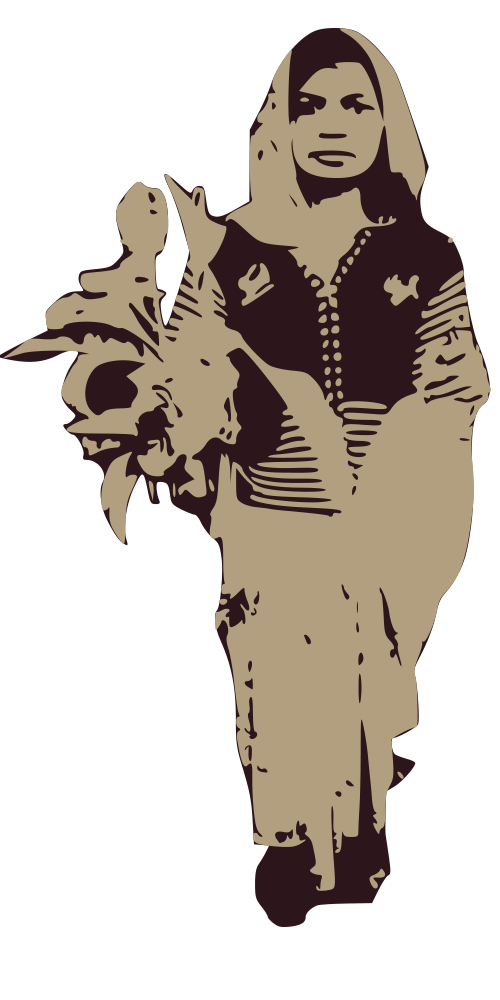-
 Meet Bhanu“I am not literate, but I have enrolled names of mychildren in the land records in order to avoid anyfraud regarding ownership of land with them.”
Meet Bhanu“I am not literate, but I have enrolled names of mychildren in the land records in order to avoid anyfraud regarding ownership of land with them.”
-
 Get InformedLearn how land rights impact the lives ofwomen around the world.Click Here
Get InformedLearn how land rights impact the lives ofwomen around the world.Click Here Raquel Ludermir, Academic & Activist
Raquel Ludermir, Academic & Activist
Profession: Farmer
Meet Bhanu. Bhanu is a 30 year old mother of four who lost her husband in 2013. Fearful that Banu would remarry, Banu’s brother-in-law refused to give her the legal share of her agriculture land.
Frustrated by her brother-in-laws actions, Bhanu wanted to better understand her legal rights. She approached one of the programmes run by the Paralegal Workers Kamdaben and Amtiben of the Swa Bhoomi Kendra (Land Awareness and Legal Literacy Centre for Women) operated with the support of NGO Human Development and Research Centre (HDRC). While there, Bhanu met paralegal workers who helped facilitate a dialogue with her brother-in-law. After clarifying Bhanu’s legal rights her the land, her brother-in-law was willing to share the land with her.
Even though the agreement with Bhanu’s brother-in-law was a major achievement towards securing her rights to the land, there were still other obstacles to overcome. Bhanu still needed to procure a death certificate of her husband. She visited the panchayat office four times to get these documents, but to no avail. She was not able to acquire these certificates. Bhanu again visited the paralegal workers at the legal literacy center. With their support, she procured this certificate, as well as other procedural documents including a record of genealogy and copies of her land records.
Finally, Bhanu’s name was entered in the village in the land records where she was listed as the proud owner of 0.68.99 hectare (almost 1.5 acre) of land. While she owns this land, she was still concerned that people will try to take advantage of her illiteracy and her vulnerability. She says “I am not literate, but I have enrolled names of my children in the land records in order to avoid any fraud regarding ownership of land with them.”
As Bhanu’s relationship continued with the Swa Bhoomi Kendra (SBK), she learned how to claim her government entitlements by participating in a social security scheme for widows. SBK also helped her enhance the productivity of her land by gaining access to 25 pipes for irrigation and an agriculture kit from the Department of Agriculture. Finally, by her own efforts, she constructed a toilet near her house.
Reflecting on her experiences, Bhanu says, “After getting in touch with the SBK, I learned that chemicals fertilizers and pesticides are harmful to the land, human health and the environment. Therefore, I decided to adopt organic farming. I started using vermi compost and amrutpani (one type of biofertiliser) in my entire farm. That has made my produce and my soil better. While, I often still do feel lonely when my relatives do not help in getting a better education for my children and a better livelihood for all of us. But I now I know how to budget and I have my land title. I feel I can do everything.”
Paralegal Workers are trained centrally by “Working Group for Women and Land ownership (WGWLO)”, a network of more than 40 CSOs working on the issue of women’s land ownership, issues of women farmers and motivating them to organic farming. HDRC is a member of WGWLO.
This story was submitted by NRMC and originally shared by the Human Development Resource Centre (HDRC) and Working Group for women and Land ownership (WGWLO), Gujarat, India.

